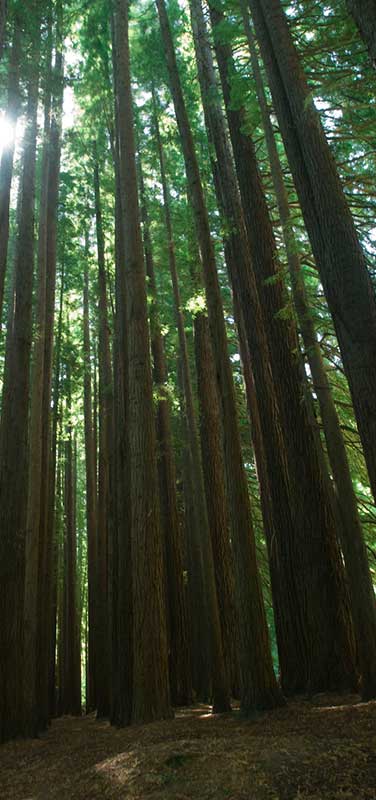
This week, there’s new insight into some of America’s favorite trees.
On Wednesday, a group of researchers from the University of California-Berkeley, Humboldt State University and the Marine Conservation Institute presented findings from a four-year study of coast redwoods at a symposium at Berkeley. By taking core samples from redwoods on 16 test plots, they have been able to determine a chronology as far back as the year 328 A.D.
One of their most interesting findings is that the redwoods have experienced an unprecedented growth spurt since the 1970s. The exact cause is still unknown, but signs point to several effects of climate change. The iconic trees have likely been helped by the extended growing season of a warmer climate and by the climate change-induced decrease in fog, which has allowed them to get more sun. Soak up the rays, redwoods!
Their research is scheduled to continue for 10 more years. What else could we learn? Humboldt State forestry professor Stephen Sillett tells the Save the Redwoods League that these first four years of the program represent “the golden age of redwood exploration.” The study of redwoods, sequoias and climate will help the researchers understand more about how to conserve these important forests. The trees may also have much to teach us about climate change. Ancient redwood forests store at least three times more carbon above ground than any other forests on Earth.
The majestic redwoods have stood the test of time over thousands of years — the researchers identified a new record-breaker for redwood age: a 2,520-year-old colossus — and their future chances look good. Of course, that’s not the case for all the organisms that share the ecosystem, including us. As Sillett tells the Los Angeles Times, “When it comes to climate change, I’m more worried about humans than I am about redwoods. I think they’re going to hold their own.”
Like big trees? Don’t limit yourself to the coast redwoods and giant sequoias. Check out the National Register of Big Trees to discover more gentle giants.